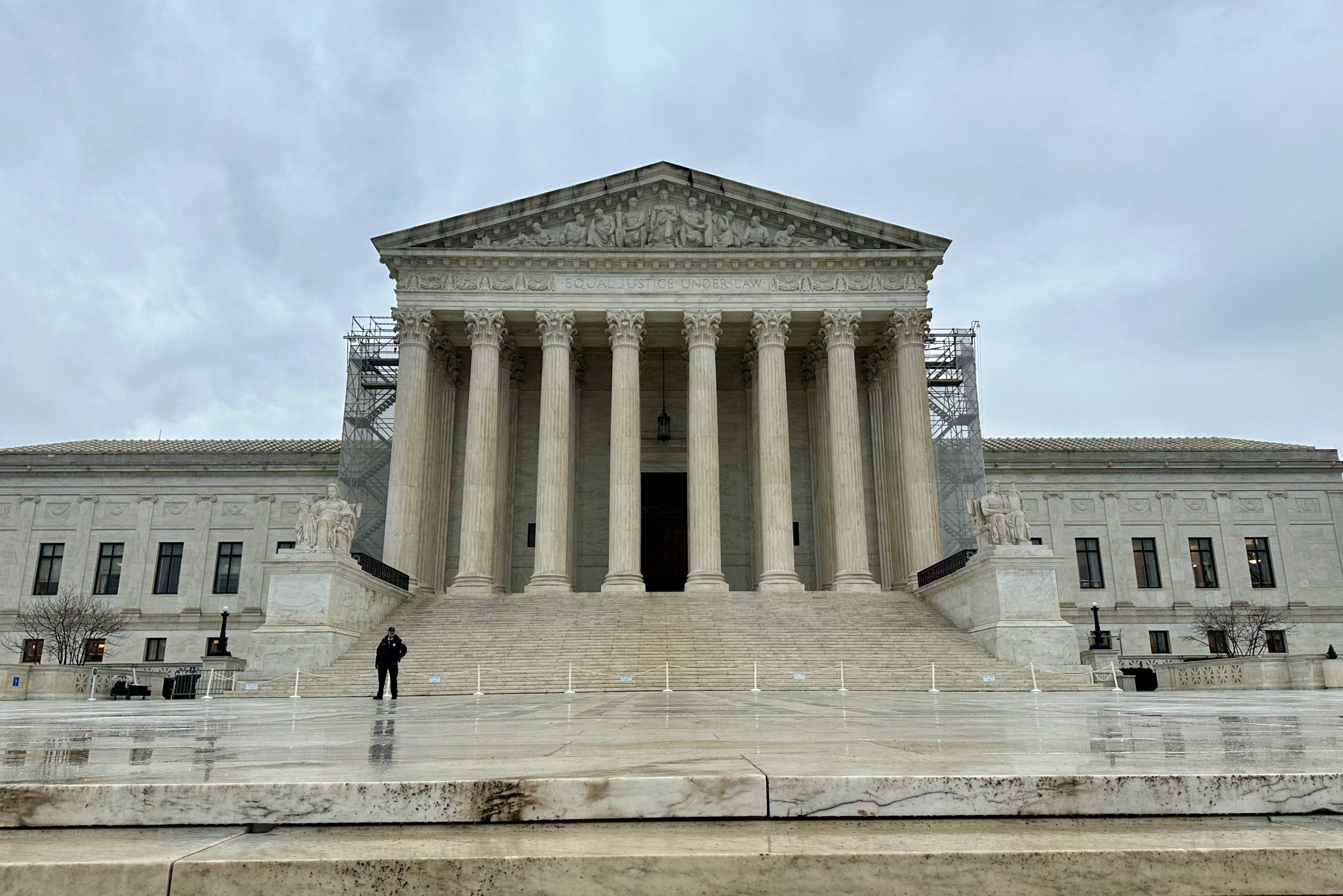The ECJ’s Apple Decision: Implications of International Tax
Ireland has reported that it will now finalise
the recovery of approximately EUR14.1 billion from Apple, representing unpaid taxes and interest which have been escrowed for the greater Ireland has reported that it will now finalise the recovery of approximately EUR14.1 billion from Apple, representing unpaid taxes and interest, which has been escrowed for the greater part of the past decade.
Key Points
Tax rulings may give rise to state aid if they provide the company in question with a more advantageous treatment than the normal corporate tax regime in the member state concerned.
- The ECJ previously determined that the benchmark against which a tax measure is assessed should be limited to the domestic tax rules of the member state. The ECJ annulled earlier Commission decisions that found tax rulings amounted illegal state aid in cases involving Fiat Chrysler and Amazon, and Engie. It found that the Commission had dis The arm’s-length principle is, in broad terms, the basis upon which tax authorities attempt to replace the pricing of related parties’ transactions with that of a comparable arm’s-length transaction The ECJ concluded in Apple that the Commission had the right to interpret Irish laws in accordance with the arm’s-length principle, even though Irish law did not contain an explicit provision to this In a highly specific judgment, the ECJ in Apple accepted the General Court’s conclusion that Ireland had accepted the Irish law in the case “corresponded essentially” to the arm The ECJ ruled that the Commission had the right to include the arm’s-length principle in the reference system. While addressing perceived unfair tax ruling practices was clearly a priority in the 2010s, competition policy and the international tax arena have both developed new focuses.
- Irrespective of how the Commission chooses to use the Apple decision in enforcing state aid rules, the case is consistent with the international trend towards the view that multinational enterprise (MNE) tax transfer pricing policies should be subject to review not just by the countries with primary taxing jurisdiction, but also those countries with an opportunity to tax via the Organisation for Economic Co-operation and Development’s (OECD’s) Pillar 2 Undertaxed Payments Rule (UTPR) and Income Inclusion Rule (IIR). State Aid Prior to Apple
- The Commission has been targeting member states’ tax practices over the last decade, in line with its new enforcement policy that defines tax rulings for multinational enterprises as illegal These tax rulings, while in principle legal, may constitute state aid if the company receives a more favorable treatment than the normal corporate taxes in the state. In recent years, the majority of the Commission’s decisions finding that bespoke tax arrangements amount to unlawful aid have been overturned on appeal. In recent years, however, the majority of decisions by the Commission that bespoke tax arrangements amounted to illegal aid were overturned on appeal. The sovereignty of member states in tax administration is a key factor in this. It follows that general principles and guidance can only be regarded as part of the reference systems where they have been expressly incorporated into national legislation. The ECJ followed the same line of reasoning adopted in Fiat in two subsequent judgments delivered in December 2023; Engie
- and Amazon
- .
More specifically, the Court found in Fiat Chrysler and Amazon that the Commission had manifestly disregarded the provisions of the applicable national tax law and explanations put forward by the state in favour of an abstract interpretation of the arm’s length principle. In Engie, the Court ruled that disputes over the interpretation of domestic law should be resolved in favour of the member state’s interpretation where that interpretation is compatible with the wording of the domestic law.
In all three of the abovementioned cases, the ECJ annulled the Commission’s findings on the basis that it had disregarded the applicable national tax law and consequently did not correctly identify the reference tax system, which invalidated the entirety of the reasoning relating to the existence of a selective advantage.
It was largely expected that the ECJ would follow the same line of reasoning in the Apple appeal and find that the Commission had wrongly identified the reference system, or alternatively follow the recommendation of Advocate General Giovanni Pitruzzella to refer the case back to the General Court for a new assessment on the merits.
In a surprise judgment, however, the ECJ considered itself in a position to give final judgment and upheld the Commission’s assessment.
Progress of Key Tax Ruling State Aid Cases Through the EU Courts[1]Apple[2] (Ireland)[3]Commission decision
upheld
by the ECJ (2024)
Amazon[4] (Luxembourg)
| Commission decision [5] | |
| annulled by the General Court; General Court upheld by the ECJ (2023) | Engie (Luxembourg)Commission decision |
| annulled by the ECJ (2023) | Excess Profits (Belgium)Commission decision |
| upheld by the General Court (2023); General Court ruling | on appeal at the ECJFiat |
| Chrysler (Luxembourg)Commission decision | annulled by the ECJ (2022)Mead Johnson (UK/Gibraltar)Commission decision |
| partially annulled by the General Court (2022); no appeal to the ECJ but EC resumed its investigation | Starbucks (Netherlands)Commission decision |
| annulled by the General Court (2019); no appeal to the ECJ but EC resumed its investigation | Apple Facts |
| Through two tax rulings adopted in 1991 and 2007, the Irish tax authorities confirmed that the greater part of the profits recorded by two Apple group subsidiaries, incorporated but not tax resident in Ireland, were attributable to their head offices outside Ireland rather than to their Irish trading branches. Consistent with the general international tax principle that countries should tax non-residents’ business income attributable to a permanent establishment in the country, Ireland only taxed the profits attributable to the Irish trading branches, and Irish tax law was silent as to how the profit attributable to the Irish branches was to be determined.In 2016, the Commission disagreed with Ireland’s understanding of its own domestic law and took the view that the allocation of Apple group intellectual property (IP) licenses and associated profits to the foreign head offices rather than the Irish branches was not in line with normal taxation under Irish law. The Commission concluded that this gave Apple an unfair advantage on the European market, as it reduced its corporate tax liability in comparison to other companies operating under normal market circumstances. It was also illegal state aid. The General Court annulled the Commission’s decision in July 2020 after finding that the Commission failed to prove a selective benefit as a result the tax arrangements. The ECJ Apple Judgment: Details | The higher court judges, ruling under Grand Chamber composition, overturned General Court’s conclusion. They agreed with the Commission’s The ECJ affirmed the Commission’s conclusion that Ireland had incorrectly applied its national tax laws including the arm’s-length principle by failing to verify if the Apple IP should have instead Whereas the Irish branches performed functions justifying the allocation of the IP to them, the head offices were not able to control or manage the relevant IP licences and, as such, they should not have been allocated the profits derived from the use of those licences.Notably, the Court reached this conclusion despite the fact that the arm’s length principle had not been explicitly incorporated into Irish tax law at the relevant time, and even though the authorised OECD approach had been introduced after the adoption of the Apple tax rulings.The ruling raises the important question of how the Court’s reasoning can be reconciled with its pre-existing case law, which established that the analysis should be limited to the domestic law system of the state concerned, such that external rules and principles, including the arm’s length principle, cannot be taken into account unless the national tax system makes explicit reference to them. |
The reasoning in the ECJ Apple decision is that — in contrast to the previous appeals — the Commission’s definition of the applicable reference system was already endorsed by the General Court and had not been left open for further discussion on appeal.
The ECJ noted the General Court’s recognition in Apple that there is no autonomous arm’s length principle that applies without that principle having been incorporated into national law. The reasoning in the ECJ Apple decision is that — unlike previous appeals — the General Court’s definition of the applicable reference system was already endorsed by them and had not been left open for The cases differed on the facts. In Apple, unlike the other cases, the Commission interpretation did not conflict the relevant provisions of domestic law. Ireland confirmed that the tax laws in question “corresponded essentially” to the arm’s length principle and provided no other satisfactory explanation during the Commission’s investigation of the way the tax ruling The Commission was therefore entitled, the ECJ held, to use the arm’s length principle as a tool in its assessment in this case.Accordingly, in our view, the final Apple ruling is largely contained to the facts of the case, which means that parallels with other rulings and comparable fact patterns cannot easily be drawn. The case demonstrates that the applicable national law and administrative practice of the tax authority as communicated to the Commission during the administrative stage of the proceedings remains key in the state aid assessment of tax rulings.
What Do We Do With Apple[6]
in 2024
?
Competition Commissioner Margrethe Vestager, who has vigorously led the Commission’s state aid strategy on tax rulings since the start of her mandate, was emboldened by the judgment after having faced the setbacks in the other major cases. She said that the ECJ ruling encouraged her to do more. “The Commission will continue to work on harmful tax planning and aggressive tax competition.”
As Vestager nears the Teresa Ribera, a Spanish politician, has been appointed as the next commissioner for competition policy. She will take office later this summer, subject to approval by the EU Parliament. The priority may be given to other issues, such as the drive for net-zero and the role of industrial policies and the long-term competiveness of the European Union. Mario Draghi, former Italian prime minister and head of the European Central Bank, addressed these two issues in a recent report. He suggested that more state-led investments (or even subsidies) were In a strange coincidence, Draghi’s report was released the day before Apple’s decision. Apple was a good example of how the Commission can still review the application of domestic rulings made under the state aid rules. However, we believe that Apple is not the springboard that the Commission had The OECD’s Pillar 2.0 has enabled multiple jurisdictions to monitor other countries’ domestic enforcement. See our 22 November 2022 client alert “EU Court of Justice Faults European Commission for Expansive Interpretation of State Aid in Tax Rulings
“.
Case C-451/21 P and C-454/21 P, Engie SA and others v Commission, judgment of the ECJ, December 5, 2023.
Case C-457/21 P, Commission v Amazon.com Inc. and others, judgment of the ECJ, December 14, 2023.
Opinion of Advocate General Pitruzzella in Case C-465/20 P, European Commission v Ireland, Apple Sales International, Apple Operations International and Others.
Cases concern Commission decisions finding the existence of state aid and ordering the recovery of that aid.
OECD’s 2010 Report on the Attribution of Profits to Permanent Establishments.


![[Podcast] AI in the Workplace: What Employers need to Know [Podcast] AI in the Workplace: What Employers need to Know](https://images.bannerbear.com/direct/y0aJ23zRDdqMxX4OGl/requests/000/070/814/940/5R7NlW8nEzj83rNkQmvbxgLyP/c366ca87efd575b336590e2f40a4aeb9d89b6967.png)

